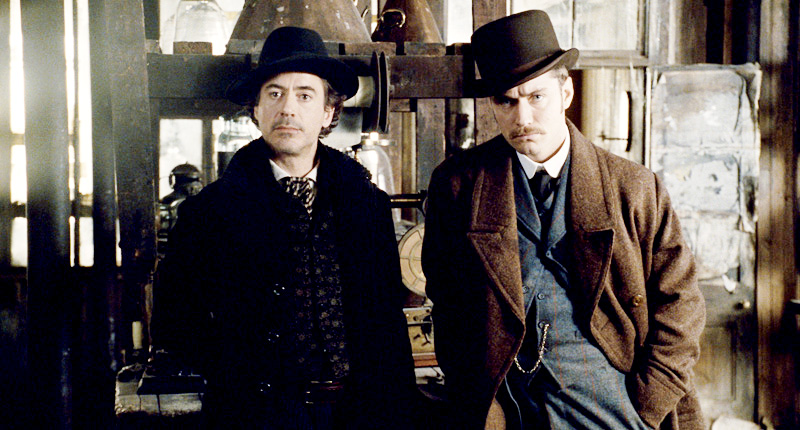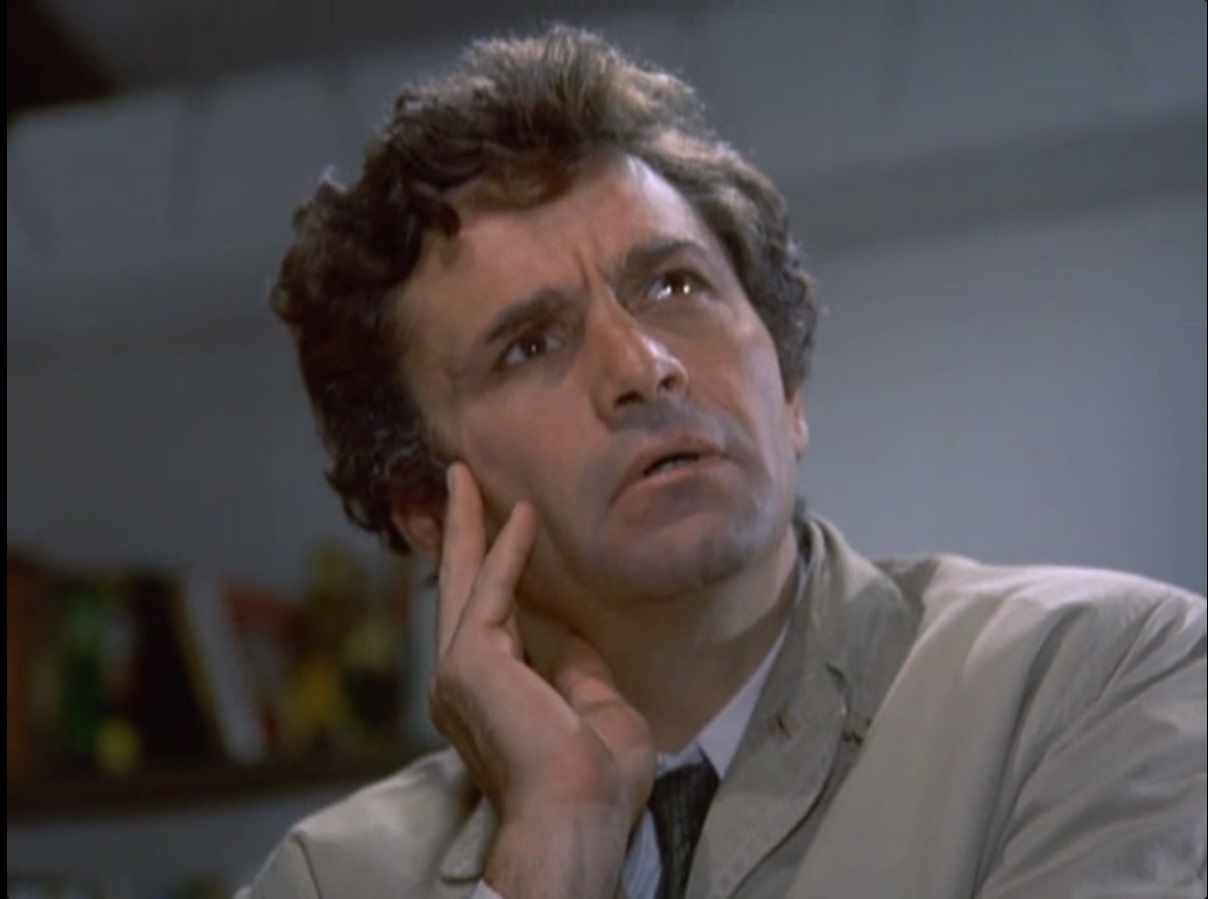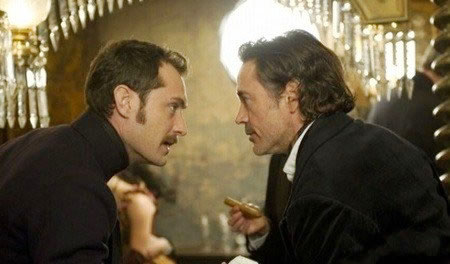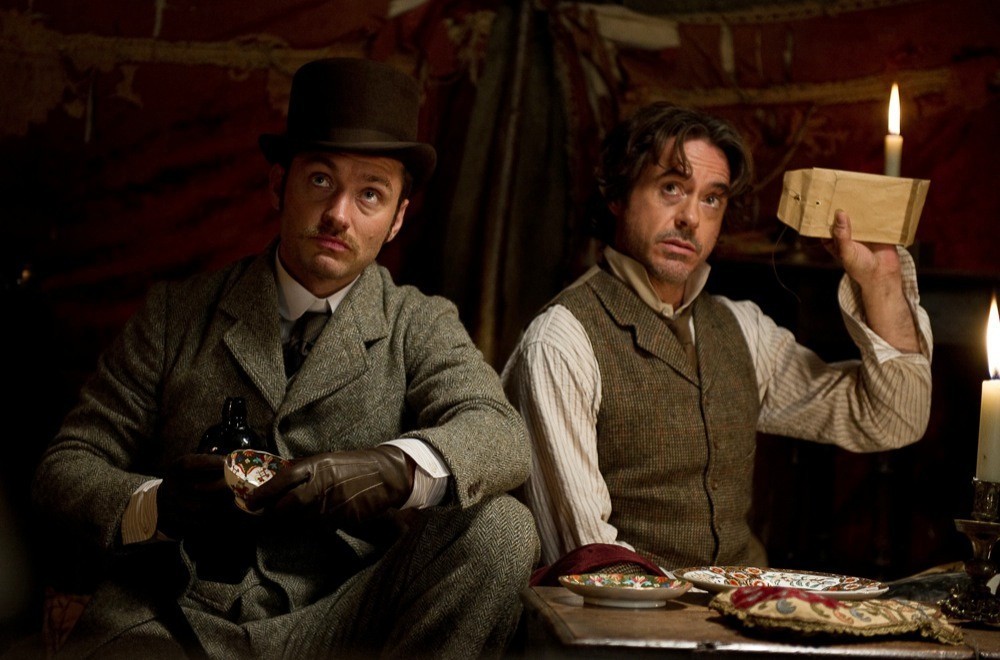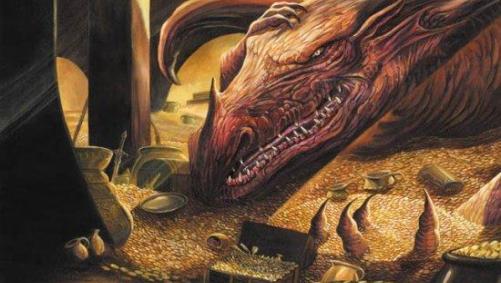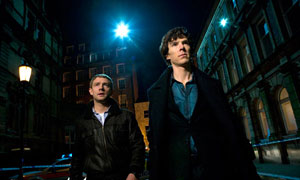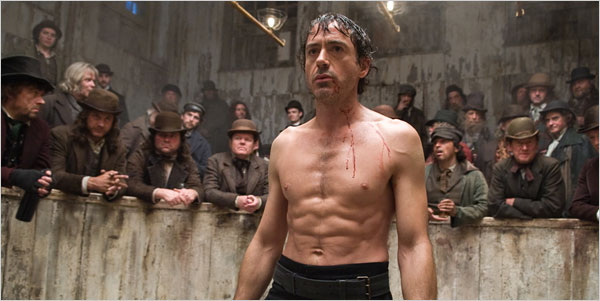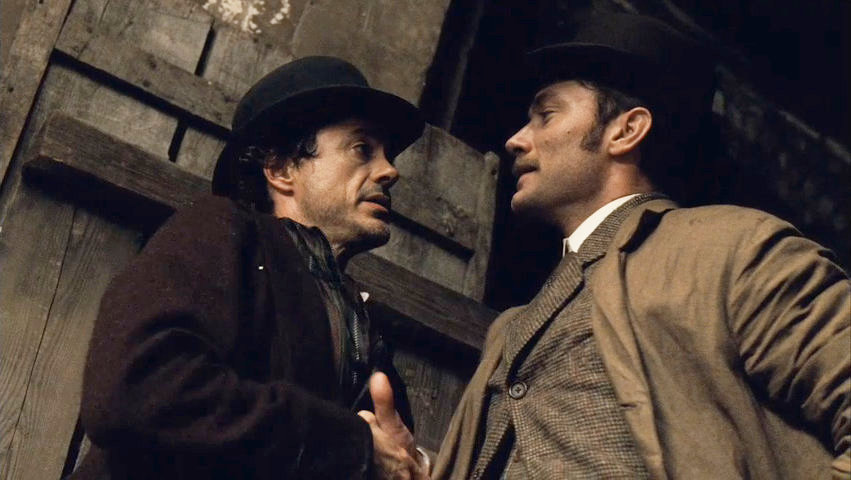
Now that the book has been closed on the
Curious Case of the Lengthening Decade Retrospective, time to get back to a few last holdovers from 2009 not quite superlative enough to make the
end of year top twenty. First up,
Guy Ritchie’s summer-movieish revamp of Sherlock Holmes, which was…more enjoyable than I expected, frankly. While it has elements that don’t work — most notably Irene Adler and too much future-tech — it’s actually quite a bit more Holmesian than I originally surmised, and not bad at all for a holiday popcorn film.
Ok, yes, this is basically just Sherlock Holmes as summer-movie superhero. Here, the famous detective of 221B Baker St. — now the “world’s greatest detective” in the Batman sense — has lost the trademark deerstalker and calabash. Here, he’s a boxer and martial arts expert, and these fighting skills are put to work as often as his talent for masterful observation. And, yes, in the climactic scene, as per summer-blockbuster tradition, Holmes actually fights the Big Bad — the insidious Aleister Crowley wanna-be Lord Blackwood (Mark Strong) — mano a mano atop the yet-to-be-completed Tower Bridge.
This may all rankle some purists with fond memories of Basil Rathbone and the like. But I thought it all worked out decently well, and in fact this Victorian-era Batman incarnation of Holmes seems — to me at least — to be pretty close to Sir Arthur Conan Doyle’s original vision. (Replace the Tower Bridge with Reichenbach Falls, and Blackwood with Professor Moriarty, and all of the changes above hew to the Holmes of the stories.) And, while I’m no doubt a beneficiary of very low expectations for this project — the ‘splosion-ridden trailers made it look really dumb — this Sherlock Holmes actually spent more time utilizing his vaunted skills of deduction than I expected going in. (This also allows Ritchie to favor one of his favorite cinematic tricks from Snatch and Lock Stock — showing the same event multiple times until the “real” story is told.)
In fact, I actually like some of the characterizations here in this Holmes. Thankfully not at all reminiscent of Tony Stark (even when he’s for-some-reason rocking sunglasses in a Victorian graveyard), Robert Downey, Jr. here makes for a quality master detective, all in all. He makes Holmes’ eccentricities seem like an organic outgrowth — or even an unintended consequence — of his intellectual gifts, rather than just grafted-on character tics. (I particularly liked the Superman-ish conceit, before dinner with the future Mrs. Watson (Kelly Reilly), that Holmes has trouble filtering through all the information he’s picking up at all times.)
And, while the bromance aspect here is probably overemphasized (it definitely made the Doyle estate blanch), I like that this Dr. Watson (Jude Law) brings certain things to the table that complement Holmes’ strengths. Watson is not just a bumbler here but an invaluable #2 — he’s not bad at detection himself, he can hold his own in a brawl, and he helps keep Holmes focused on the task at hand. Sure, one could argue that Ritchie et al have basically just made Dr. Watson the Robin to Holmes’ Batman, but, again, this felt closer to the mark of the original stories to me. (Although, speaking of grifting from the Dark Knight, I thought the sequel-setup involving Professor Moriarty here at the end was way too reminiscent of the Joker foreshadowing in Batman Begins.)
Are there problems with Sherlock Holmes? Oh, most definitely. For one, like I said, Holmes and Watson fall ass-backwards into situations requiring fisticuffs entirely too often to be plausible, which amplifies the action-movie stupid of these proceedings. For another, I think Rachel McAdams is usually both a very good and very fetching actress. But she seems entirely too young for the role of Irene Adler, Holmes’ match in wit, intellect, and derring-do. To switch tracks for a moment, Adler is the Marion Ravenwood to Holmes’ Indy, and, as such, this was a part screaming for the likes of Cate Blanchett or Tilda Swinton — someone closer to Downey’s actual age. (For that matter, they should’ve given her more to do than just be a damsel in distress, but that tends to be a hazard of the genre.)
Finally, and this is where Ritchie’s film really sorta lost me in the end, the technology involved in this story should also have been (Victorian) Age-appropriate. At one point early on, Holmes is seen working on a silencer…that doesn’t quite silence. Ok, that’s fine, as it turns out “suppressors” went on the market not too long after this period. But Tasers? Cyanide canisters under Parliament that are operated by remote control? C’mon now, that’s just lazy. I don’t mind all the “secret potion extracted from dried rhododendrons found only in deepest Namibia”-type stuff, because the original stories went there rather often. But giving the otherwise great villain Lord Blackwood access to 21st century WMD-tech is just plain idiotic. The Hurt Locker this ain’t.
So, my dear Watson, to conclude: If you approach Guy Ritchie’s action-fable with appropriately dimmed expectations, and remain cognizant that we’re traipsing about in summer blockbuster territory here, Sherlock Holmes is actually pretty worthwhile. I wouldn’t go so far as to call it smart entertainment or anything. But, for what it is, Holmes is no embarrassment to its titular character, and you can probably count me in for the inevitable sequel. (Can’t say I’m much feeling Brad Pitt as Moriarty, but Pitt might could sell me on it. Perhaps, like Holmes, I should widen my gaze.)
